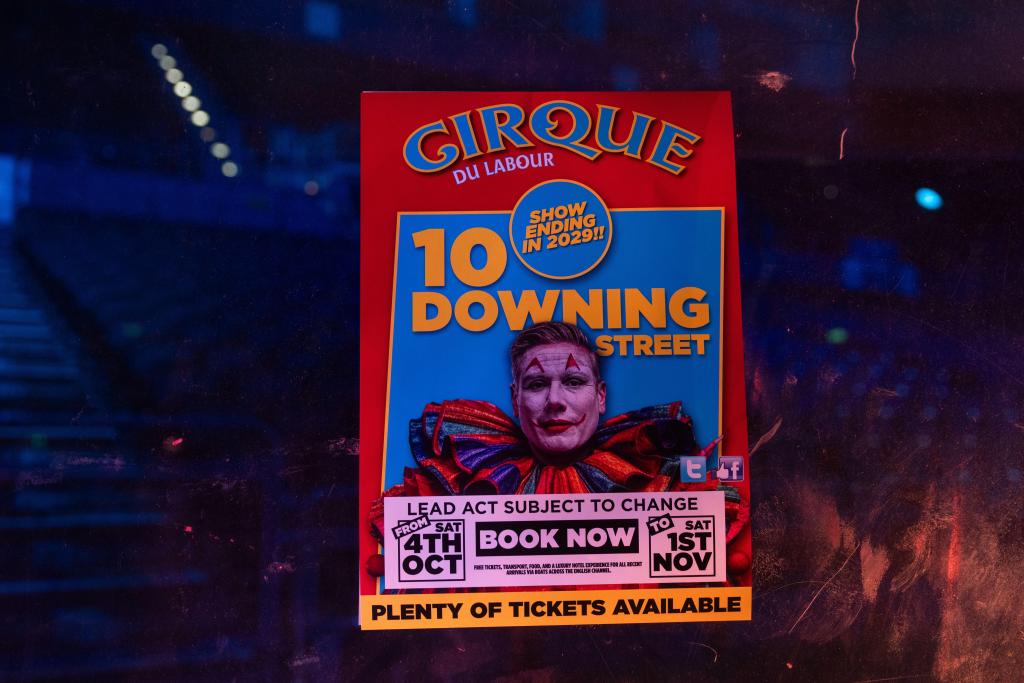When Rishi Sunak announced a July election during a torrential downpour, one leftist wag played ‘Things Can Only Get Better’ at high volume in adjacent Whitehall.
The audible strains of the D-Ream hit – which served as Tony Blair’s election anthem – added to the impression of a drowning PM and conveyed the notion that a heavy Tory defeat was inevitable. And so it proved.
Yet the parallels with 1997 are already done and dusted. Because while Blair had a political honeymoon which lasted all the way to the subsequent election, Keir Starmer’s ended almost as soon as it began. It is today reported that Starmer will acknowledge this in a speech on Tuesday in which he will explicitly declare: ‘Frankly, things will get worse before we get better.’
Given that the Government has already alienated big voter tribes such as pensioners and a fast-emerging working class white identity group set to cause it all kinds of new problems, this is sensible expectations management.
Labour’s first few weeks in power have been marked by claims of two-tier policing and justice, the withdrawal of winter fuel payments from around 80 per cent of pensioners just as the energy price cap rises significantly, the cementing in place of punishing means-testing in social care and a surge in small boat arrivals across the Channel.
August opinion polls have Labour back down to its unimpressive general election vote share of 33-34 per cent after a very early post-landslide bounce was not sustained. While the Tories are also locked at or below their own terrible election vote share, they do at least have the prospect of the new party leader having plenty to aim at when she or he takes up the position in early November.
Also on the right, the cocktail of popular misery and widespread impression that Britain is sinking into a dystopia amount to ideal conditions for Nigel Farage to plot a new populist insurgency, this time from the green leather benches of the Commons. Labour insiders are intensely nervous about Reform’s threat, especially in the nearly 90 seats where it came second to them on 4 July.
But there is at least as much concern in the Government about its other flank, given the breakthrough made by the Greens, who now have four MPs and every chance of fomenting a left populism to rival Farage’s on the right (the various pro-Gaza leftist independents are viewed as less of a dynamic short-term threat because of their absence from opinion polls).
With a tax-raising Budget on the horizon to go along with higher energy bills, it is no wonder then that Starmer has decided to immerse his army of bright-eyed rookie MPs in a vat of pessimism.
On Tuesday he will make a speech declaring that he inherited not just an economic black hole, but ‘a societal black hole’ too. ‘When there is a rot deep in the heart of a structure, you can’t just cover it up. You can’t tinker with it or rely on quick fixes. You have to overhaul the entire thing. Tackle it at the root. Even if it’s harder work and takes more time…That’s why this project has always been about fixing the foundations of this country,’ he will reportedly say. The speech will apparently directly warn that he will be taking more ‘unpopular decisions’ and pledge to be honest ‘about the choices we face and how tough this will be’.
Running a country in economic decline and with burgeoning social divisions is in general not a recipe for popularity
The main hope among Labour strategists is that Starmer and Chancellor Rachel Reeves can establish a certain incumbent weight, just by avoiding an early economic squall of the Truss-Kwarteng variety. But that may still come.
Running a country in economic decline and with burgeoning social divisions is in general not a recipe for popularity. When your ideology dictates yet more incentive-sapping socialist redistribution and further concessions to the divisive identitarian left, a way forward through the gloom is very hard to discern.
We may readily agree with the Prime Minister that things are going to get worse. But the second half of his prediction – that they will then get better – depends on effective remedies being applied to the multiple ills of our age.
Perhaps one or two things will work out well – better workforce training, a more streamlined planning system. But the cynics among us will suspect that starting badly and then deteriorating is probably the way it is going to go.








Comments